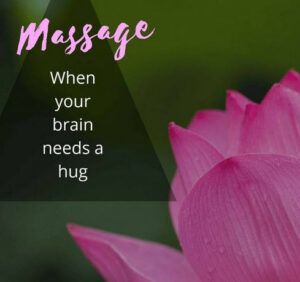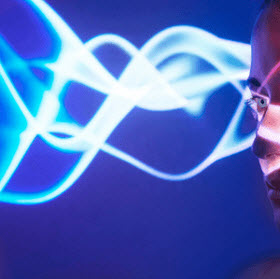Welcome to the final stretch of 2022!
Are you exhausted just thinking about counting down to Christmas and New Years?
You are not alone!

With all the shopping that still needs to be done, the stressful preparations of food for Christmas Day (including all the guests and family members with special dietary wishes or allergies) – not to mention all the extra social gatherings, barbecues work-dos and End-of-Year parties that are filling up your busy calendar…it’s totally normal you feel exhausted and completely overwhelmed.
Ah yes – Have I mentioned buying presents?
It can all feel way too much. No wonder you’re irritable, find it impossible to concentrate, even find it really hard to kick-start your days in the morning
If this sounds like you chances are you might be dealing with end-of-year fatigue, which is not just another fad, but a real problem which many women suffer from during the months of November and December.
Check out the list below. Do you suffer from any of the following symptoms?
• Insomnia or Lack of sleep
• Boredom
• Irritability
• Generalised body aching
• Poor memory and concentration
• Depression
• Anxiety
It’s no surprise that by the time we hit November, our minds and bodies are burned out and desperately need a rest.
Because we constantly find new ways to increase our productivity so we can squeeze a little more work into our day we feel constantly over-stimulated.
You can’t focus anymore because you are constantly pulled in a 1000 directions by this relentless stream of notifications, alerts, beeps, buzzes and vibrations on your devices. Day after day you are under pressure to meet work deadlines. Add to that getting your kids to school, attending your child’s dance competition whilst juggling to get your oldest to sport practice mount up like a pressure cooker. No wonder this stress takes its toll on your body and emotions and you end up feeling both mental and physical fatigue by the end of the year.

Physical Fatigue sets in because you start to feel exhausted as a result of all the physical activities you do – for example walking to work, perhaps working in a physical job that involves lifting heavy objects, and being on your feet all day.
Mental Fatigue reduces your cognitive functions. You find it difficult to concentrate for a length of time and forget things quickly. You can’t focus on small things, struggle immensely to generate fresh ideas and find ti impossible to muster up enough motivation to complete tasks.
What Happens in Our Brains When We Feel Fatigue?
Simply put – the reason why you feel so tired after a long day concentrating at work is that your brain has slowed down to manage the strain.
A clever woman from the Institute of Neurology at University College London names Dr Anna Kuppuswamy says, “We know that during physical exercise, lactate accumulates in the muscles, leading to muscle fatigue. It is kind of intuitive that something similar happens in the brain, and we now have excellent first evidence to suggest that.”
To dig deeper we need to get a little “nerdy” and scientific on you, but bear with me, it will all make sense quickly:
Continued mental activity leads to a build-up of a potentially toxic neurotransmitter (glutamate) in the prefrontal cortex, according to a published study in Current Biology.
The latest research indicates your brain slows down its activity to manage the build-up, which offers a logical explanation as to why you feel tired. We believe the body clears away this excess accumulated glutamate during sleep. If you have problems getting deep, healing sleep at night the problem gets worse because you are not clearing away this potentially toxic build up in the brain.
Although these studies are not conclusive, they certainly give us an idea of what happens in our bodies and why we feel fatigued. It also gives us some ideas which steps we can take to avoid long periods of fatigue, support a healthy you and get you more energised at the end of the year.
With Christmas just around the corner what can we do to prevent a full burnout and reduce the fallout from the previous 10 months?
Here are my top tips on self-care:
Look After Yourself and Practice Self-Care
Although it can be a challenge to look after yourself, adding self-care to your to-do list is even more important now than any other time of the year.
Because your To-Do-List mounts up, you’re being pulled in all sorts of different directions to keep work, home life and relationships afloat and every day another chaos ensues. All the more reasons to schedule precious out – time for yourself each day, add something that restores and re-balances you to your To-Do list. Grab a coffee and sit in your garden. Run a bath and listening to your favourite podcast. Read in your favourite book or go for a brief walk.
Here are a few more ideas how you can pamper yourself and reduce your fatigue:
o Pamper yourself with a massage
o Flick through your favourite magazine
o Get crafty and feed your creative vibe
o Potter in your garden
o Spend your morning at the beach or your evening at a lake to wind down
Just make sure your Me – Time is scheduled and prioritised, because it doesn’t really matter what the activity is as long as it relaxes and recharges you. The commitment to relax and unwind you make to yourself is just as important as the promises you make to everybody else.
Get a Deeply Relaxing and Soothing Massage
Top of the list for most women will be a pampering Relaxation Massage when it comes to self-care.
Being able to switch off completely for an hour and relinquishing yourself to the soothing touch of healing hands is absolute bliss. You come away relaxed, refreshed and revitalised.

Not only is massage good for stress relief, ongoing massage therapy can increase energy levels and reduce overall body aches and pains.
Treat yourself to some much needed time-out and self-care and book a massage now at Relaxation Massage for Women in Kapiti.
Brainwave Entrainment
Brainwave Entrainment is not a ‘treatment’ for fatigue, in the same way that running is not a ‘treatment’ for obesity. However – it can help.
Brainwave entrainment supports your mental and emotional well-being by inducing calm brain states (which is exactly what happens during a meditation session, when enjoying a massage, or relaxing with a book), it can help with several mental wellness symptoms, including fatigue.
DeepWave Brainwave Entrainment focuses on inducing specific brain states, predominantly calm, sleepy, and relaxed states, by using a gently pulsing high-frequency LED light. It is non-invasive, requires no talking and leaves you with feelings that you might experience after a deep sleep, relaxing massage, a float tank or deep meditation session.
By targeting deep sleep states, we can mimic the detoxification process that we know helps clean out excess glutamate. This in itself is deeply restorative, but equally valuable is the relaxing 30 minutes of stimulation free time you get when enjoying the brainwave entrainment session itself. The effects of a single session can last up to 48 hours, but impacts or symptom reduction is accumulative if several sessions are completed. If self-care measures are the antidote to fatigue, then brainwave entrainment would be the gold standard or the 5-star resort of self-care measures.

Brainwave entrainment provides the space needed between you and your symptoms. It allows you to draw breath with a calmer state of mind, with fewer symptoms and triggers. It can be incredibly restorative, supports better sleep, improves your mood and generally will help you to feel more rejuvenated.
I encourage you to give it a go, I have tried it and found the results remarkable.
You can contact the DeepWave Team at the Featherston Street Pain Clinic HERE
Eat Foods that fuel you
Whilst it may feel good to reach for comfort foods when you are tired and stressed — chocolate, chips, mac & cheese, and coffee can wreak havoc on your stress and energy levels.
When your body is stressed, junk foods may actually increase stress hormone levels. Choose foods that combat stress. Eating nutritious and balanced meals can assist with fatigue.
Limit Social Media This Christmas
People are always looking for the latest trends and news. Attempting to keep up or be distracted by each social media platform can be difficult and exhausting. This alone can significantly contribute to your year-end fatigue.
With Christmas just around the corner, it is a great time to take a wee break from social media and be present with the people around you. Why not try a digital detox and see benefits to your sleep, relationships, and overall health.
Get Enough Sleep
The average adult woman needs to sleep at least eight hours per night. You will feel fatigued, irritable and sluggish if you sleep less. The same is true for too much sleep; for example, sleeping for 11 per night is excessive and could result in even greater tiredness throughout the day.
Use Exercise To Release Stress
Exercise is a natural stress reliever with considerable benefits to your overall health. We know that endorphins are produced during heart-pumping activities, as well as the feel-good neurotransmitters responsible for that euphoric feeling. Exercise can also help you get a night of better sleep.
Make sure you exercise in moderation, giving your body a chance to recover between sessions. Otherwise, you will add more stress to your body rather than relieve it. Choose three or four days a week when you head to the gym or do a home workout. Exercise should be fun, so hiking or walking your dog also counts.
Use Clever Time Management
Having hectic weeks with no clue how everything will get done will significantly strain your body and increase your year-end fatigue symptoms. Try keeping a daily planner, divide your work into reasonable segments for each day, and ensure you complete that section of work for the day.
This will bring you one step closer to finishing your work and give you a sense of achievement.
Say No More Often
Toward the end of the working year, pushing yourself over that finish line can feel like a mammoth effort.
If you don’t feel like you are up for a particular task or your workload is too much for you to take on, don’t be afraid to speak to your boss or the person in charge at work. Hopefully, they will be understanding and will help to find ways to make work less stressful and ultimately more enjoyable for you.
It is also the time of the year when social gatherings are more frequent, with the end-of-year drinks or Christmas functions for work being scheduled. If this all feels too overwhelming and you are finding you are sacrificing your time doing the things that you really enjoy doing and your ‘down time’, then say no.
It’s Ok to Take Regular Breaks
It is really important to take breaks whenever possible. Refrain from working through your lunch or tea breaks. Enjoy the time you have to yourself on your breaks before going back to work. The same is true when you get home in the evenings. Take a few moments to relax, de-stress and unwind before beginning your evening routine.
And remember to book yourself into a deeply soothing and pampering Relaxation Massage before you feel that you hit the wall! Give me a call or send me a text on 0211234459 to make your appointment now!
Listen to the Audio version of this article here:
